Dear Bloomers: “Never say never,” they say—but I really believe the time has come and most likely I will never return to the Kennedy Center. This makes me emotional. For the last six years, since my cancer diagnosis, I seem to be in a phase of a long series of endings and saying goodbye to a life I used to know professionally and personally.
Initially, I had declined the invitation to go to the Kennedy Center this year. I was already working in Missoula, Montana for SPARK Arts for their teaching conference, they are Kennedy Center Partners and I knew two major engagements would take a toll on my health. But my colleagues reached out and asked me to reconsider—and I’m glad I did. I was glad to go last month, one last time, to teach four teacher workshops at the Arts Education Center on their behalf.
Though it wreaked havoc on my body, it also gave me clarity: this was my swan song, closing out two decades as a Kennedy Center Teaching Artist. After that realization, I was really glad to be going. I have lost so much in these last six years. Haven’t we all? I have lost people, a way of life, health, a feeling of safety and some friends.
As usual, the conference was not held at the Kennedy Center itself, but at the Arlington Renaissance Hotel. Still, I knew I would get to gather with my fellow artists and administrators one last time. That alone made the trip worth it. I taught my “Working with Wonder: Creating Couplets Workshop,” inspired by David Drake, the enslaved potter-poet from Edgefield, South Carolina
Since my cancer diagnosis—and since witnessing how many people in the world have turned their backs on one another—I’ve become even more aware of the power of this work. Imagine demonizing three words: Diversity, Equity, and Inclusion. These are not political pawns to me. They are foundational principles—values that can make the world a better place. This is why I became a teaching artist.
I wanted all students to see a Black woman poet. My very presence in a classroom speaks volumes: If I can be an artist in this world, so can you.
It’s not about fame. It’s about hard work. It’s about giving what you’ve gained creatively back to the community—one student, one teacher, one administrator, one classroom, one school district at a time
.
As a Kennedy Center Teaching Artist, I’ve flown and driven from Mauldin to Maui, offering poetry like sustenance. Exposing teachers and students to the transformative power of verse. Poetry saved my life when I was a fifth grader and first heard Jackie Earley’s 1,968 Winters. It saved me again three years later when Ms. Sergeant’s 8th-grade English class at Woodmont Junior High School gave us daily journal writing time. That free-writing exercise was where I found my voice.
Jump forward twenty-seven years, I became a teaching artist. Ellen Westkaemper, then Vice President of Education at the Peace Center made this happen. I was already a teaching artist with the South Carolina Arts Commission and represented by the Loyd Agency as a touring poet, traveling full-time while raising my twin daughters as a single mother. Ellen encouraged me to attend a Kennedy Center training workshop so I could get on their roster. At first, the requirements were too much: develop a proposal, create a new workshop, and then audition. I simply didn’t have the capacity. Thankfully, I was a busy touring poet with thankfully a full schedule. I was one of those who made a living from poetry. As my friend and former touring partner, Scott Ainslie, would say, “It’s expensive money to make.”
But years later, Amy Dumas, The Kennedy Center’s Director of Education, called me directly. She said she believed I was a good fit and offered to help me become a teaching artist for The Kennedy Center . That summer, while I was off the road, she guided me through the process. I auditioned and was accepted. I owe a great deal to my teaching artists trajectory to Amy Dumas. I am not sure if I ever fit into the KC mold, but she helped me make that vital transition.
By 2005, I was officially a Kennedy Center Teaching Artist—and it changed my world. Though I was already working nationally, this affiliation expanded my reach into school districts all over the country. It also sharpened my skills as a workshop leader.
I loved the work. Certain partnerships became dear to me: Sarasota, Florida; New Brunswick, New Jersey; Maui, Hawaii; Lafayette, Louisiana; Tampa, Clearwater, and Orlando, Florida; Santa Clarita, California, Sarasota, Florida, Las Vegas, Nevada; and, of course, my hometown of Greenville, South Carolina. There are too many to name. These places became my communities. I returned again and again. Through Many years later Jeanette McCune found me. She worked in another at the Kennedy Center in another department. She took me into the Black community in D.C. like Duke Ellington and other schools. This made my heart sing. The work was tough but highly gratifying. She made pieces of my teaching artist path come together that geniunely fit my ethos. I am so glad our paths connected. Jeanette has been a fearless leader.
.
Another aspect I deeply miss is The Kennedy Center’s annual Teaching Artist Retreat held every September. Teaching Artists from around the country would convene in D.C. to attend workshops, share practices, and grow in community. We’d learn from one another and be poured into by the institution. That retreat was a profound resource. When the Kennedy Center ended the retreat about six or seven years ago, it was a deep loss.
Returning to The Kennedy Center this past month was bittersweet. I cherished being with my fellow Teaching Artists and colleagues one last time. Yet the visit was underscored by sorrow—by what has been lost. Our work has been caught in the crosshairs of politics. Funding has been ripped away. We’ve been told our work no longer matters
Pictured are my amazing KC Colleagues : Edrick Rhodes, Jeanette McCune, Imani Gonzalez, Marcia Daft, Sean Layne and Melanie Rick and myself.
But we know the truth. We know how many students and teachers have been transformed by the arts. We know the power of a poem, a song, a musical movement. We know the cost of this work—and its immeasurable reward.
After finishing my workshops in Arlington, I took a trip to The Kennedy Center itself. The sun was blazing, and my body—already taxed—struggled to walk the grounds. It was a journey I knew I personally needed to make. When I saw the portraits of the current administration at the entry ...When I saw the portraits of the current administration at the entry—I felt a kind of emotional theft. I felt bereft. I took a picture of their portraits, but I chose not to showcase them here. They do not deserve to be part of my journey as they do not honor people who are from the margins racially, economically and gender-wise and sexual orientations. They are doing their best to erase us. My poetry is about naming and amplifying those voices.
.
They do not acknowledge the years that administrators, artists, and teaching artists dedicated to making The Kennedy Center a noble institution—not just a monument, but a living, breathing place of creative transformation.
They can take our funding, but they cannot stop our practice or dampen our hearts.
We will find ways to do this work, because the work must go on.
The arts will survive.
Though I work less and less in schools now, I continue to program intentionally—with partners who believe in the arts and the humanity and empathy it fosters. I will continue to craft poems, books, and programs. I will continue to teach and speak and write. I hope to see you out there in these poetry streets.
.
Even while chronically ill.
Even while living with cancer.
Even while this world turns its back on its tenderest parts of us.
I will continue to walk the path of poetry.
I will Bloom Anyhow. I hope you will join me in this blooming.





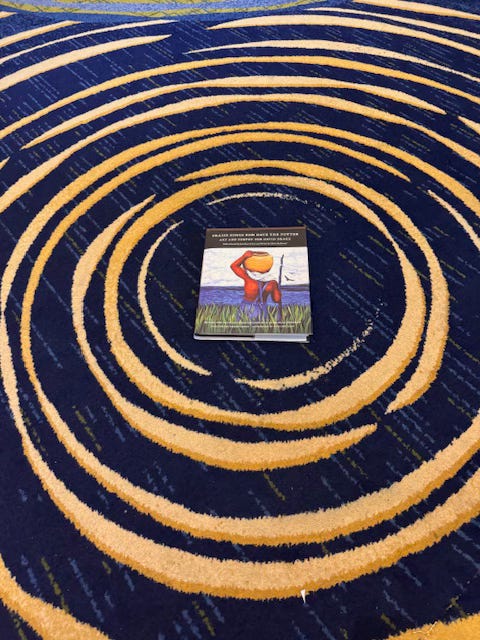
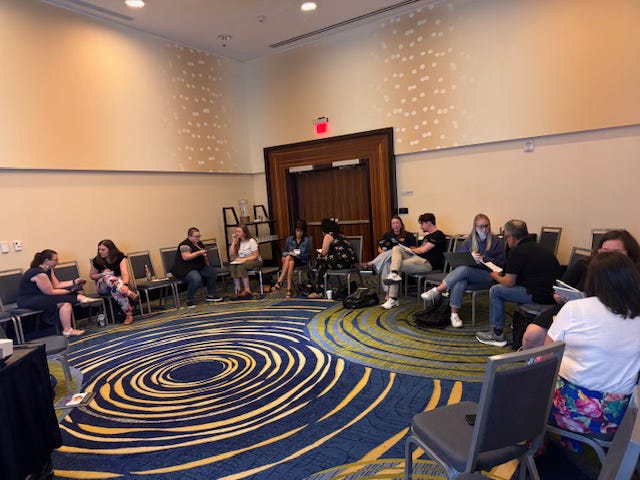
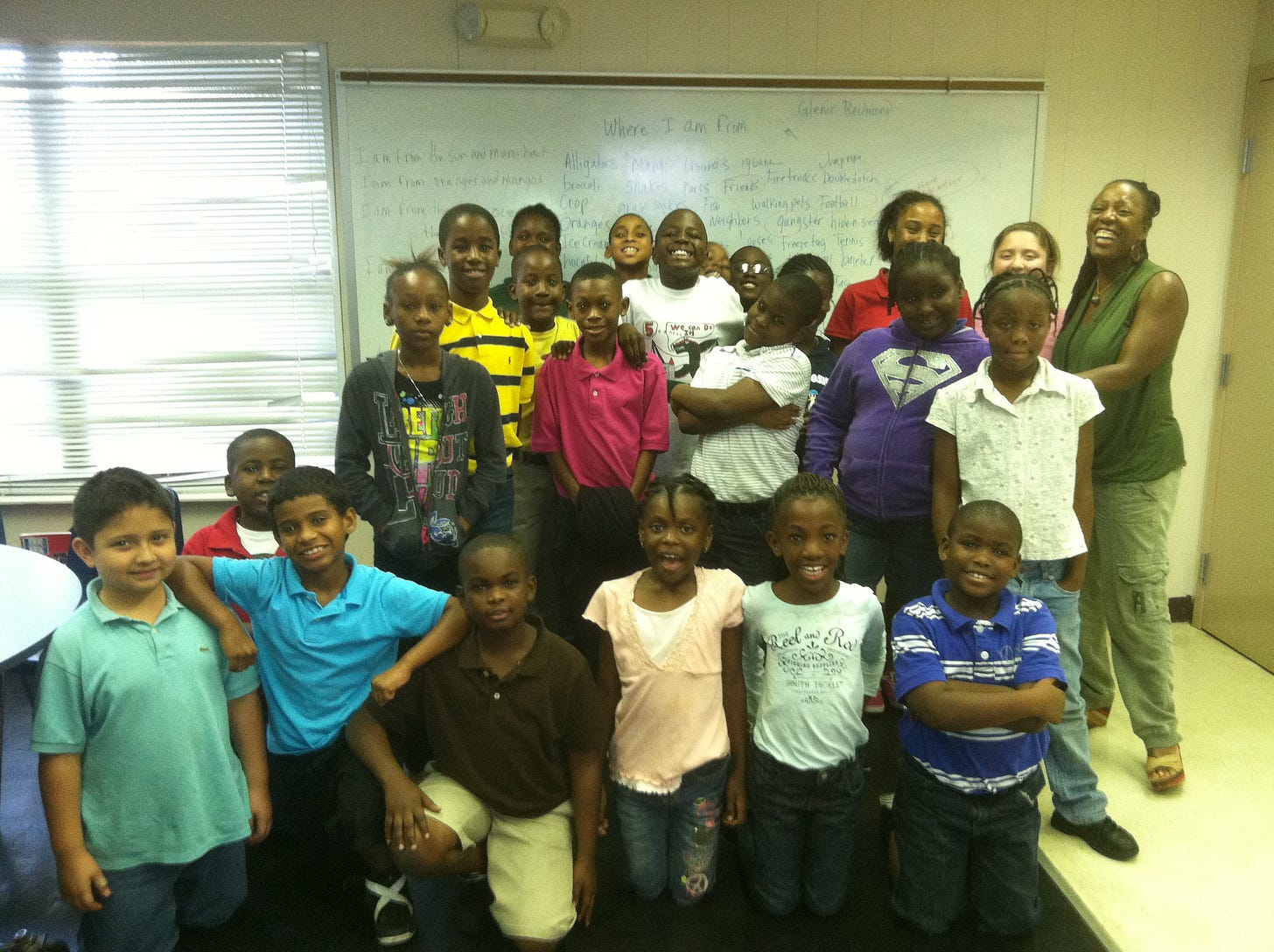

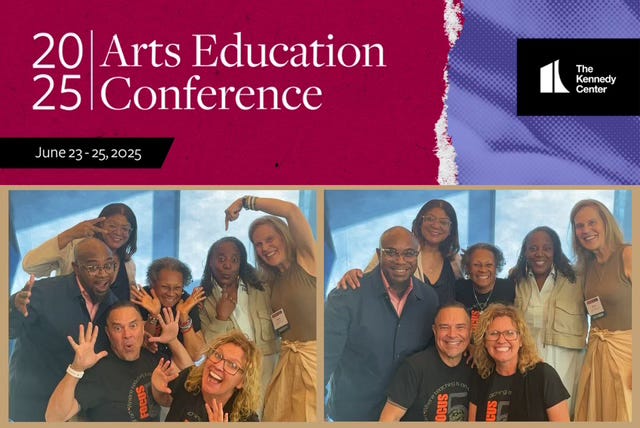
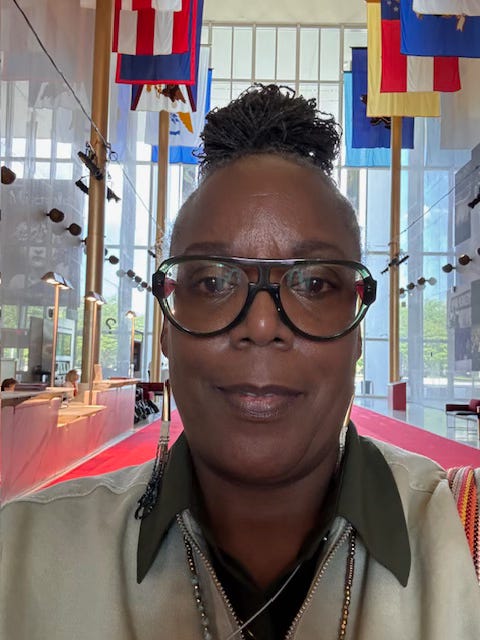

Thank you for this. Your voice has been and IS a transformative and guiding one, your work so very important.
Your voice matters, Glennis. Thank you for your words and your poetry.